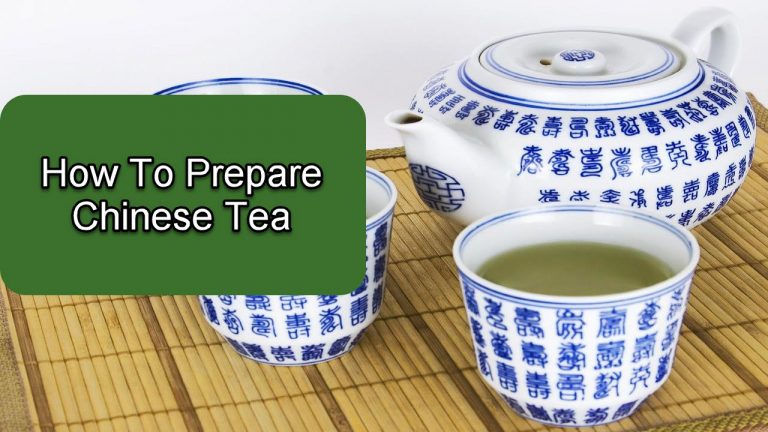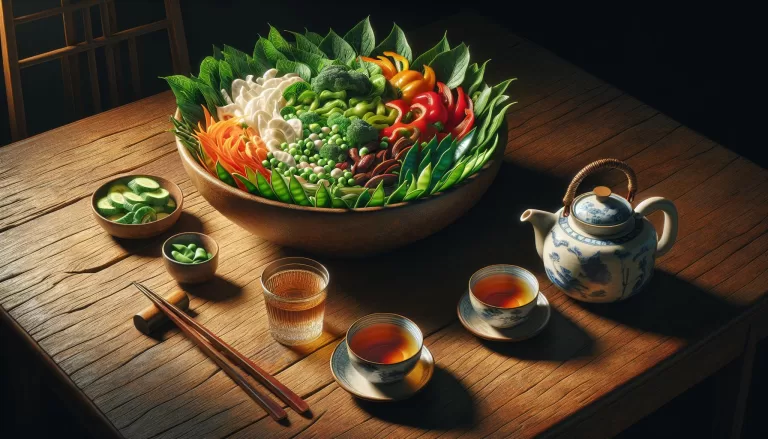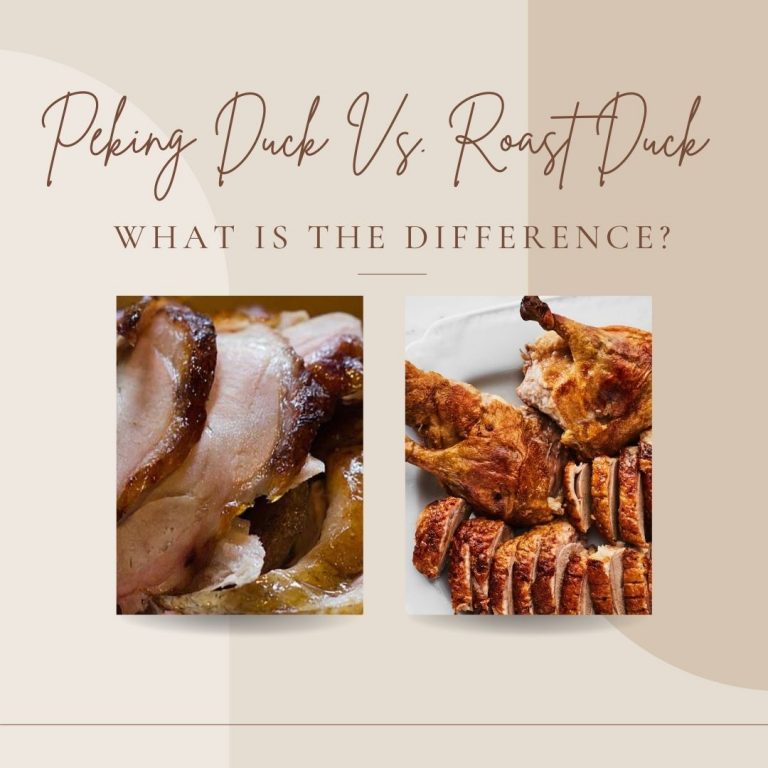Ultimate Guide to Homemade Chinese Tea Eggs Recipe and Perfect Pairings

Benefits of Homemade Chinese Tea Eggs
Stepping into the world of Chinese Tea Eggs, you’re not just embracing an epicurean adventure, but also a nutritious one. What’s so great about these tea-infused treats? Let’s spill the tea on that!
When you whip up a batch of homemade Chinese Tea Eggs, you’re adding a powerhouse of nutrients to your diet. As a good source of first-class protein, eggs are chock-full of essential amino acids. These little lifesavers help your body repair tissue, build muscle, and generate enzymes and hormones.
Dive into the nutritional depth of Chinese Tea Eggs, and you’ll find more surprises. Black Tea, one of the key ingredients, isn’t just there for flavor. Rich in antioxidants, it aids in reducing the risk of chronic diseases and improving heart health. Isn’t that amazing?
| Ingredient | Nutrient | Benefit |
|---|---|---|
| Egg | Protein | Repair tissue, build muscle |
| Black Tea | Antioxidants | Reduce chronic disease risk, Improve heart health |
No need to fret about the spices either. Star anise and cinnamon, found in the marinade, hold their own in the health department. Star anise is packed with antioxidants and vitamin C, while cinnamon can reduce insulin resistance and lower blood sugar levels.
Bring all these ingredients together, and they create a silent army fighting for your health. Couple that with the hypnotizing aroma and unique taste of these tea eggs, you’ve got a winner recipe on your hands.
Sure, it sounds like a lot of perks for just one dish, but why stop there? By making Chinese Tea Eggs at home, you can tweak the recipe to meet your particular dietary needs and preferences. Plus, it’s always an excellent opportunity to show off your culinary prowess!
So, after all this, you may wonder if there’s anything else that Chinese Tea Eggs can offer. Well, how about a cozy kitchen filled with the captivating smell of tea and spices, along with an authentic Chinese culinary experience at your fingertips? Yes, it’s all included in the package when you make Chinese Tea Eggs at home!
In your journey to explore and relish the art of Chinese cuisine, these tea-infused marbled beauties stand as a testament to the saying, ‘the way to a person’s heart is through their stomach‘.
Ingredients Needed for the Recipe

Diving into the creation of homemade Chinese Tea Eggs, it’s critical to understand each ingredient and its contribution to the final dish. Here, we’ve enumerated the key players that’ll render these authentic tea eggs a winning flavor fiesta. Ensure your pantry is stocked up with the following:
Essentials:
- Eggs: 6-8 large-sized (Base protein ingredient)
- Black Tea: 2 tablespoons loose leaves or 2 bags (Main flavor essence)
- Star Anise: 2 whole pods (For that unique Licorice aroma)
- Cinnamon: 1 medium-sized stick (Warm, sweet undertone)
- Soy Sauce: Subtle umami flavor (1/4 cup)
- Chinese five-spice powder: Aromatic depth (1 teaspoon)
- Sugar: Balances out savory notes (1 tablespoon)
Take note, every component brings its unique signature. Offer a nod to the role played by Star Anise and Cinnamon in imparting unmatched aroma and flavor depth.
Got the basics down? Good! But here’s an insider tip: Try out Sichuan peppercorns. It’s not conventionally used but a half teaspoon could elevate your tea eggs to an altogether different level, teasing your taste buds with a tongue-tingling sensation.
Worried about the calorie count? Fear not! One serving of Chinese Tea Eggs roughly adds upto:
| Ingredient | Calories |
|---|---|
| Egg | 70 |
| Black Tea | 2 |
| Star Anise | 5 |
| Cinnamon | 3 |
| Soy Sauce | 5 |
| Chinese five-spice | 8 |
| Sugar | 16 |
This sums up to a healthy 106 calories per serving, helping you maintain that fitness regimen.
Observe how meticulously each ingredient comes with its nutritional clout. Craft your homemade Chinese Tea Eggs with swiftness and finesse, honoring your dietary needs while you savor this centuries-old delicacy.
Step-by-Step Guide to Making Chinese Tea Eggs

1. Hard-boil the Eggs
To start off with, boil six eggs. These will form the delicious base of your tea eggs. Make sure you don’t overcook them; stop the heat as soon as they’re hard-boiled.
2. Create the Cracks
Once they’ve cooled slightly, use a spoon to create small cracks in the shells. Why? Letting the marinate seep into the egg creates a beautiful pattern and infuses each egg with wonderful flavor!
3. Brew the Tea
Brew two teaspoons of black tea with two cups of water. This forms the base of your marinade and is the essence of the “tea” in tea eggs. So choose your tea wisely! Maybe a full-bodied Assam or an earthy Pu’erh.
4. Add the Flavors
In a pan, combine your freshly brewed tea, two tablespoons of soy sauce, two stars of anise, a stick of cinnamon, and a pinch of your five-spice powder. Toss in four tablespoons of sugar for a hint of sweetness. Remember, for a unique, spicy twist, don’t forget to throw in a few Sichuan peppercorns.
5. Marinate the Eggs
Submerge your cracked eggs in this delectably fragrant mixture. Let it simmer on a slow heat for about an hour, allowing the spices to penetrate deep into the eggs.
6. Steep and Sweet Patience
Finally, let the eggs steep in the mixture for a few hours, better yet, overnight. The longer you steep, the stronger the flavor.
| Ingredients | Quantity |
|---|---|
| Eggs | 6 |
| Black Tea | 2 tsp |
| Soy Sauce | 2 tbsp |
| Star Anise | 2 stars |
| Cinnamon | 1 stick |
| Five-Spice Powder | Pinch |
| Sugar | 4 tbsp |
| Sichuan Peppercorns | Few |
Tips for Enhancing the Flavor

Attention to detail is vital when it comes to the art of making Chinese tea eggs. Remember, it’s the intricate blend of spices seeping through the tiny cracks in the eggshell that gives this delicacy its unique taste. Here are some proven tips to make your tea eggs burst with flavor.
The quality of your ingredients plays a big role. Using fresh eggs provides a better texture and taste. Freshly grounded spices, rather than pre-ground versions, infuse a stronger flavor. Loose black tea leaves over tea bags can also add depth to the flavor.
Marination time affects flavor absorption. To achieve a stronger, more aromatic taste, allow the eggs to steep in the marinade overnight rather than for a few hours. This pro tip helps your eggs absorb all the fragrance and flavor from your marinade.
Adjusting the proportion of ingredients can customize the flavor. If you prefer a sweeter taste, slightly increase the amount of sugar. For a spicier kick, add extra Sichuan peppercorns. Experimenting with the proportion helps you discover your perfect blend.
You might also want to try experimenting with different types of tea. Black tea is the traditional choice but using oolong, jasmine, or green tea can introduce new flavor profiles to your eggs.
Adding a small amount of vinegar into your marinade doesn’t only tenderize the egg, but also balances out the dish’s sweetness with a tangy finish.
| Nutritional Info | Amount |
|---|---|
| Calories | 78 |
| Carbs | 1g |
| Protein | 6g |
| Fat | 5g |
| Vitamins | A, D, B2, B12, and E |
Serving Suggestions and Pairings

The crowning moment has arrived at last – serving your homemade Chinese tea eggs. To draw in friends and family with an irresistible presentation, decipher the art of serving and pairing. Your meticulous effort during crafting and marinating process will shine, elevating the culinary experience.
To add a contrast to the marbled, earthy tea eggs, consider some vibrant greens. Bok choy or stir-fried green beans serve as great side dishes adding additional layers to your meal. However, variety is the spice of life. Venture out. Experiment with different side dishes. To jog your inspiration, try pairing your tea eggs with:
- Wok-fried vegetables, like broccoli and bell peppers
- Steamed jasmine rice
- Cold sesame noodles
Tea eggs not only make a mouth-watering bite, but they also bring versatility to your table. Whether serving for breakfast or as a protein-rich snack, they always fit the occasion. For morning meals, lay them beside toast smeared with matcha-infused butter or wholemeal crackers. Midday or evening snack? Complement them with some light daikon radish salad. On the go? Pop a tea egg in your bag for a quick, nutrient-dense bite anytime, anywhere.
The taste of Chinese tea eggs has a likeness to the tannic and slightly astringent nature of some wines. A fine wine pairing can take taste buds on a roller-coaster ride. Opt for light-bodied white wines like Sauvignon Blanc or Pinot Grigio, or if you prefer red, a lightly chilled Gamay will work wonders.
Remember, these are only guidelines. Your palate, your preference. Feel free to think outside the box and tailor your tea egg experience.
Conclusion
So there you have it! Your journey into the world of homemade Chinese tea eggs doesn’t end with just cooking. It’s about the whole experience – finding the perfect pairings, experimenting with side dishes, and even exploring wine options. Remember, these tea eggs are versatile and can fit into any meal of the day. Whether it’s breakfast with matcha-infused toast, a light lunch with stir-fried greens, or an evening snack with a glass of light-bodied white wine, it’s all about what suits your taste buds. Don’t be afraid to mix things up and try new combinations. After all, the best part of cooking is making it your own. So go ahead, savor the flavors and enjoy the art of Chinese tea eggs.





